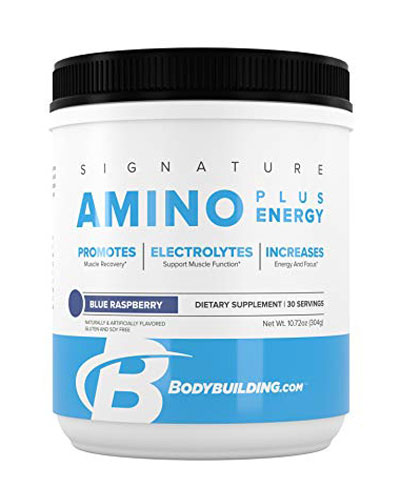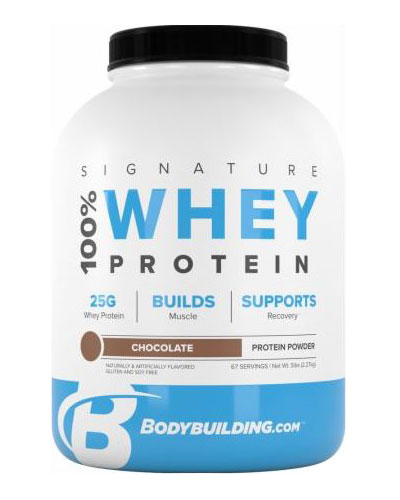Bodybuilding.com Hoists Its Regulatory Experience As Lesson For Compliance
This article is powered by The Rose Sheet
Executive Summary
Highlighting dietary supplement sector's self-regulation at a recent supplement industry regulatory conference, the sports nutrition product marketer's chief counsel Bill Carter described his experience in federal court in 2012. He suggested some supplement firms, like Bodybuilding.com previously, don't consider themselves likely to incur litigation or criminal charges linked to regulatory problems when they learn about other businesses that have. "Just because you don't hear about a lot of FDA's office of Criminal Investigations doesn't mean they're not active," he said.
Pleading guilty to criminal charges linked to marketing steroid-spiked supplements leaves a lasting impression about regulatory compliance, says Bodybuilding.com's Bill Carter.
Highlighting the dietary supplement sector's self-regulation at a recent supplement industry regulatory conference in New York, Carter described his experience in federal court in Boise, Idaho, in May 2012, about a year after he joined the online marketer of sports nutrition, fitness and wellness supplements as its chief legal officer.
"We are our own worst enemy here," he said of vitamin, mineral and supplement industry's regulatory compliance history.
As an official from FDA's Office of Dietary Supplement Programs said earlier at the American Conference Institute and Council for Responsible Nutrition's Legal, Regulatory and Compliance Forum, Carter encouraged other firms to open communications with the agency outside of contact during inspections. FDA can help when firms work with it, he said. (Also see "US Supplement Market Growth: Is The Industry In Its Own Way?" - HBW Insight, 19 Jun, 2018.)

"There's really no reason for us to be engaged in an adversarial, polarizing relationship with the agency," said Carter on June 19.
After the FDA Office of Criminal Investigations started investigating Bodybuilding.com and other supplement firms marketing potentially drug-spiked sports nutrition products in 2009, the Boise-based business operated by Liberty Expedia Holdings Inc. subsidiary Vitalize LLC opened communication channels with state attorneys general offices as well as with the federal agency.
"We did that not because we were targeted in an investigation, but we did that because we want to maintain an ongoing, proactive relationships with these agencies," Carter said. "Get a relationship started with them prior to needing one," he added.
Not Always 'The Other Guy'
Carter suggested that some supplement manufacturers and marketers, as Bodybuilding.com once had, don't consider themselves likely to incur litigation or criminal charges stemming from regulatory problems when they learn about businesses that have. "Just because you don't hear about a lot of FDA's Office of Criminal Investigations doesn't mean they're not active," he said.
Some firms might say, "Oh, that will happen to the other guy … well, we were the other guy," Carter said.

In September 2009, FDA raided Bodybuilding.com's facility after a two-year investigation on suspicion it was marketing and distributing anabolic steroids, including madol and androstenedione, as dietary supplements. The firm had received five warning letters, starting in 2002, as it continued its noncompliant practices. (Also see "Steroids Sold As Supplements Targeted In FDA Actions, Congressional Hearing" - Pink Sheet, 28 Sep, 2009.)
"This was the beginning of the realization by our parent company that compliance and what we do in the dietary supplement industry from a self-regulatory standing point is extremely important," Carter said.
And the importance was driven home for Carter personally three years later.
"Can you imagine yourself standing in a federal court as a representative of a company and being sworn in and having to plead guilty in front of a federal judge? That sort of sears into your brain the importance of compliance and the desire to never find yourself in that position that again," he said June 19 at the industry conference in New York.
"The other interesting part of the story was having to walk into the clerk's office with a check for $2 million and having to ask for a receipt."
In addition to the firm, which also provides nutrition and strength-training content and gear on its site, Ryan DeLuca, the company’s founder and former CEO, and Jeremy DeLuca, the former president, pleaded guilty on charges linked to violations of FDA regulations. Plea agreements entered in the case docket state that between March 2006 and September 2009, Bodybuilding.com sold five products misbranded as supplements. It was ordered to serve four years’ probation and to implement a product testing procedure; Ryan DeLuca was fined $500,000, Jeremy DeLuca was fined $600,000 and both were sentenced to three years’ probation.
Compliance Costs Known
The compliance programs Bodybuilding.com implemented were an overhaul of its system. In some respects, the first step was budgetary, shifting from operating with unknown costs for regulatory risks to known costs for compliance, Carter said. It's working so far because the firm currently is not targeted in any litigation concerning regulatory compliance.

"We have taken that quantifiable cost of compliance and just made it part of the company's culture," he said, adding, "The goal here is to avoid litigation altogether the method is to have a robust pre-market verification process."
Bodybuilding.com's compliance program includes review of vendors' labels and testing of their products before supplements "go live" on the website and its agreements with those firms include broad indemnity and insurance requirements. The process includes:
- full label review; mandatory labeling statements, formula, claims (request substantiation if needed), nutrition labeling, formatting, safety and efficacy;
- review ingredient exclusions in vendor’s insurance policy;
- product pages content final compliance review and sign off prior to a product being offered on the website.
Vendor compliance monitoring also includes product label or formula changes submitted to Bodybuilding.com for compliance check prior to printing or production, and compliance and quality control managers conducting ongoing audits of existing labels and product pages to ensure product inventory and approved label or formula match.
For providers of its 36 private label products, Bodybuilding.com has "compliance engaged from start to finish," according to Carter's presentation.
In addition to reviewing the suppliers' formulas, it:
- substantiates dosage/efficacy and claims;
- reviews labels with specific checkoff lists for multiple teams;
- reviews content intended for the site about products, including videos and images;
- tests for heavy metals and stability; archives all documents; maintains product ‘binders’ for each product by size and flavor.
The firm also determines whether each of its private label stock-keeping units should be labeled with California's Proposition 65 warning about a product containing substances the state considers potentially carcinogenic or linked to causing birth defects.
It also tests for increased stimulant profiles in its products when they are named in adverse event reports. Additionally, Bodybuilding.com's private label line is formulated and labeled specifically for marketing in the UK or the European Union. It reviews labels for those products and third-party brands and private label for compliance with EU and UK regulations.
The firm's "country restriction tool management" is an internal system to restrict product distribution in certain international markets at SKU-, product- or brand-level due to formulation or required trade documentation. The system also works for restricting distribution by region or by US state.
Those programs are in addition to quality control staff monitoring GMP compliance at each fulfillment center; annual internal and contract manufacturer GMP audits; relaying AERs to brands and archiving the material for a minimum of six years; auditing labels to ensure its inventory matches what was approved at product delivery.
"We really built this program looking backwards from threats," Carter said.
